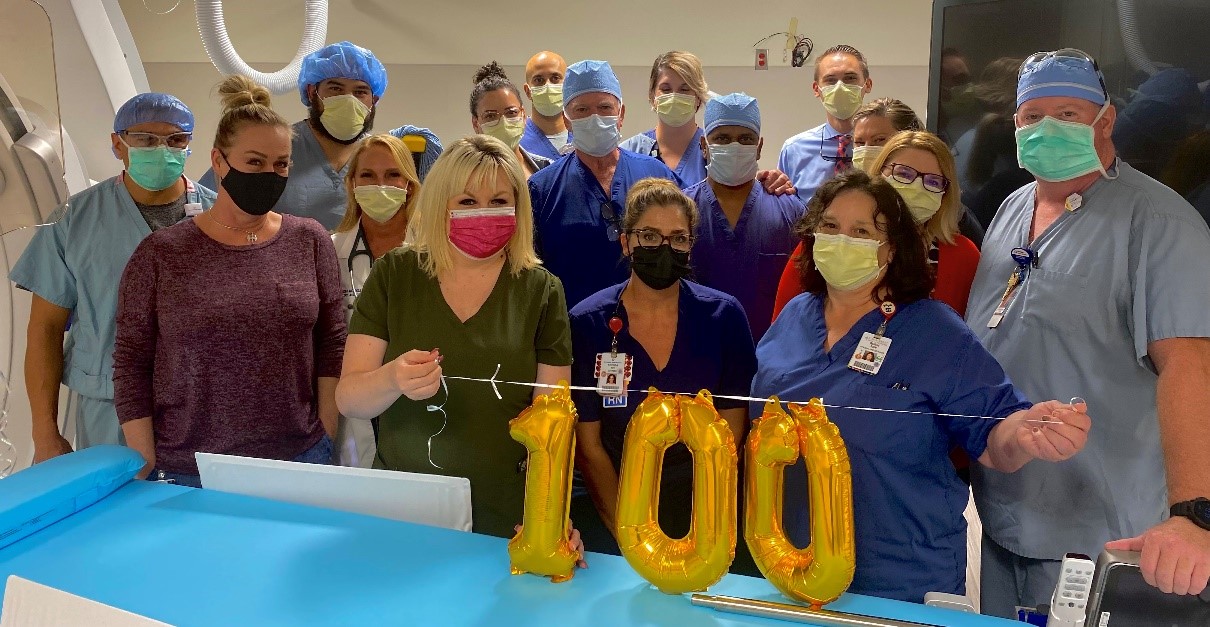Carondelet St. Mary’s Hospital in Tucson recently marked its 100th Transcatheter Aortic Valve Replacement (TAVR), a milestone of note for a new program that continued to grow even during the pandemic.
Carondelet St. Mary’s Hospital began offering the minimally invasive alternative to open-heart surgery in early 2020. “It’s normal for a hospital to have around 50 TAVR procedures completed in its initial year, and the fact that our team accomplished double that during the pandemic is something to recognize and celebrate,” said Dr. Kapil Lotun, Cardiovascular Services Medical Director.
Aortic stenosis is a narrowing of the aortic valve that obstructs blood flow to the heart and the rest of the body. Transcatheter Aortic Valve Replacement helps improve heart function, allowing many patients resume previous activity levels.
READ ALSO: Ranking Arizona: Top 10 cardiology organizations for 2021
The TAVR procedure involves inserting a new valve attached to a catheter, which is guided by the physician through the body via arteries (typically through an entry point in the leg). When the diseased aortic valve is reached, the replacement valve is deployed and secured in place.
The 100th patient, a 71-year-old Bisbee resident, said she experienced dizziness and exhaustion prior to the surgery. Today, she’s feeling much better and is active once again.
“We are incredibly proud of our team for achieving this milestone,” he said. “Your health can’t wait, and to treat this number of patients amid the COVID-19 pandemic reflects our commitment to providing safe, appropriate care for members of our community.”
Incidence of aortic valve stenosis increases with age, according to the FDA. As the aortic valve opening narrows, the heart must work harder to pump blood to the body. Occurring in about 3% of Americans over age 75, severe aortic valve stenosis can cause fainting, chest pain, heart failure, irregular heart rhythms (arrhythmias), cardiac arrest or death.
Medically necessary procedures like TAVR can be lifesaving and life altering treatment, noted Carondelet Health Network Chief Executive Officer Monica Vargas-Mahar.
“Performing more than 100 TAVRs during the pandemic shows that there is a need for our cardiovascular services, and the community trusts our Carondelet caregivers to provide safe, compassionate, quality care when lives are at stake,” said Vargas-Mahar.
For more information about cardiovascular services at Carondelet Health Network, visit carondelet.org.




